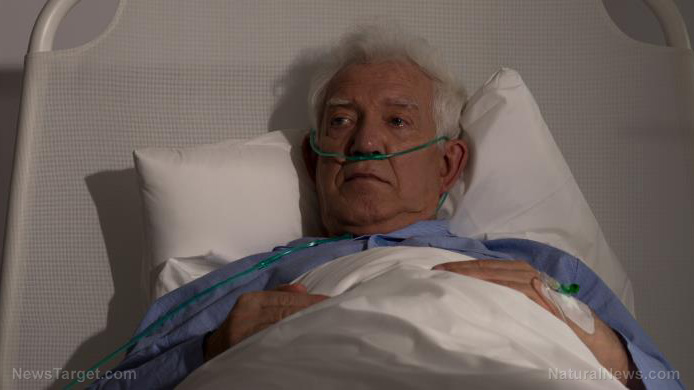At least 300 veterans in the U.S. are living out their final days on death row, according to a new report by the Death Penalty Information Center (DPIC), released just ahead of Veterans Day.
This means that approximately 10 percent of inmates sentenced to capital punishment served their country during one of its many wars, highlighting the struggles hundreds of thousands of veterans endure after returning home from war.
The numbers listed above do not include veterans who have already been executed for their crimes, notes the report, adding that many vets suffer from debilitating scars, including mental disabilities caused by their time in combat.
Such trauma may be caused by witnessing the death of fellow soldiers, their enemies and innocent civilians.
An estimated four out of five Vietnam Veterans reported experiencing symptoms of Post Traumatic Stress Disorder (PTSD) 20 to 25 years after the war. And while many are sympathetic to their post-war conditions, the justice system rarely takes their military service into consideration when sentencing veterans convicted of violent crimes.
“The violence that occasionally erupts into murder can easily overcome the special respect that is afforded most veterans,” says DPIC. “They have been judged to be the ‘worst of the worst’ criminals, deprived of mercy, sentenced to death, and executed by the government they served.”
Should the U.S. be executing mentally damaged war veterans?
While today’s society recognizes PTSD as a serious illness, vets charged with capital murder rarely experience compassion and understanding when it comes to receiving their sentences.
“Perhaps even more surprising, when many of these veterans faced death penalty trials, their service and related illnesses were barely touched on as their lives were being weighed by judges and juries.
“Defense attorneys failed to investigate this critical area of mitigation; prosecutors dismissed, or even belittled, their claims of mental trauma from the war; judges discounted such evidence on appeal; and governors passed on their opportunity to bestow the country’s mercy. In older cases, some of that dismissiveness might be attributed to ignorance about PTSD and related problems. But many of those death sentences still stand today when the country knows better,” says DPIC.
“The first person executed in 2015, Andrew Brannan, was a decorated Vietnam veteran with a diagnosis of PTSD and other forms of mental illness. Despite being given 100% mental disability by the Veterans Administration after returning from the war, Georgia sought and won a death sentence because he bizarrely killed a police officer after a traffic stop.”
DPIC says PTSD should be taken into account when determining criminal sentences for vets
“The Pardons Board refused him clemency. Others, like Courtney Lockhart in Alabama, returned more recently with PTSD from service in Iraq. He was sentenced to death by a judge, even though the jury recommended life. The U.S. Supreme Court turned down a request to review his case this year.”
The discussion about whether veterans who have committed crimes should be held to the same standard as non-veteran criminals is an important one. The government is already failing veterans in just about every regard, and now they’re being failed by the U.S. justice system.

DPIC
The above illustration provided by DPIC depicts the reality of what veterans experience during war. Nearly 90 percent of veterans serving in Iraq and Afghanistan have witnessed dead bodies and human remains, more than 80 percent observed injury to or the death of a U.S. soldier, and just under 13 percent of veterans were directly responsible for the death of a child — all experiences traumatic enough to cause mental impairment later on in life.
Though it’s certainly not an excuse for committing violence against others, it’s important for society to understand the emotional and mental trauma often plaguing veterans for a lifetime.
“PTSD is not an excuse for all criminal acts, but it is a serious mental and emotional disorder that should be a strong mitigating factor against imposing the death penalty,” said Richard Dieter, DPIC’s Senior Program Director.
“Defense attorneys representing veterans accused of capital crimes often fail to investigate and present evidence of PTSD and other war-related mental injuries. Prosecutors, judges and juries are often not adequately informed about the psychological effects of being immersed in combat, even though the mental scars of war can be just as debilitating as physical injuries.”
Sources:
DeathPenaltyInfo.org
RT.com




















